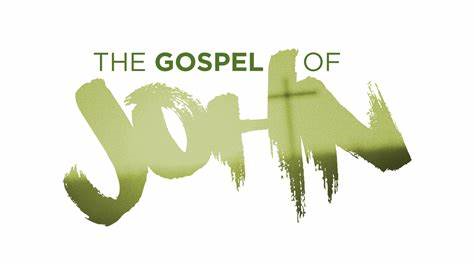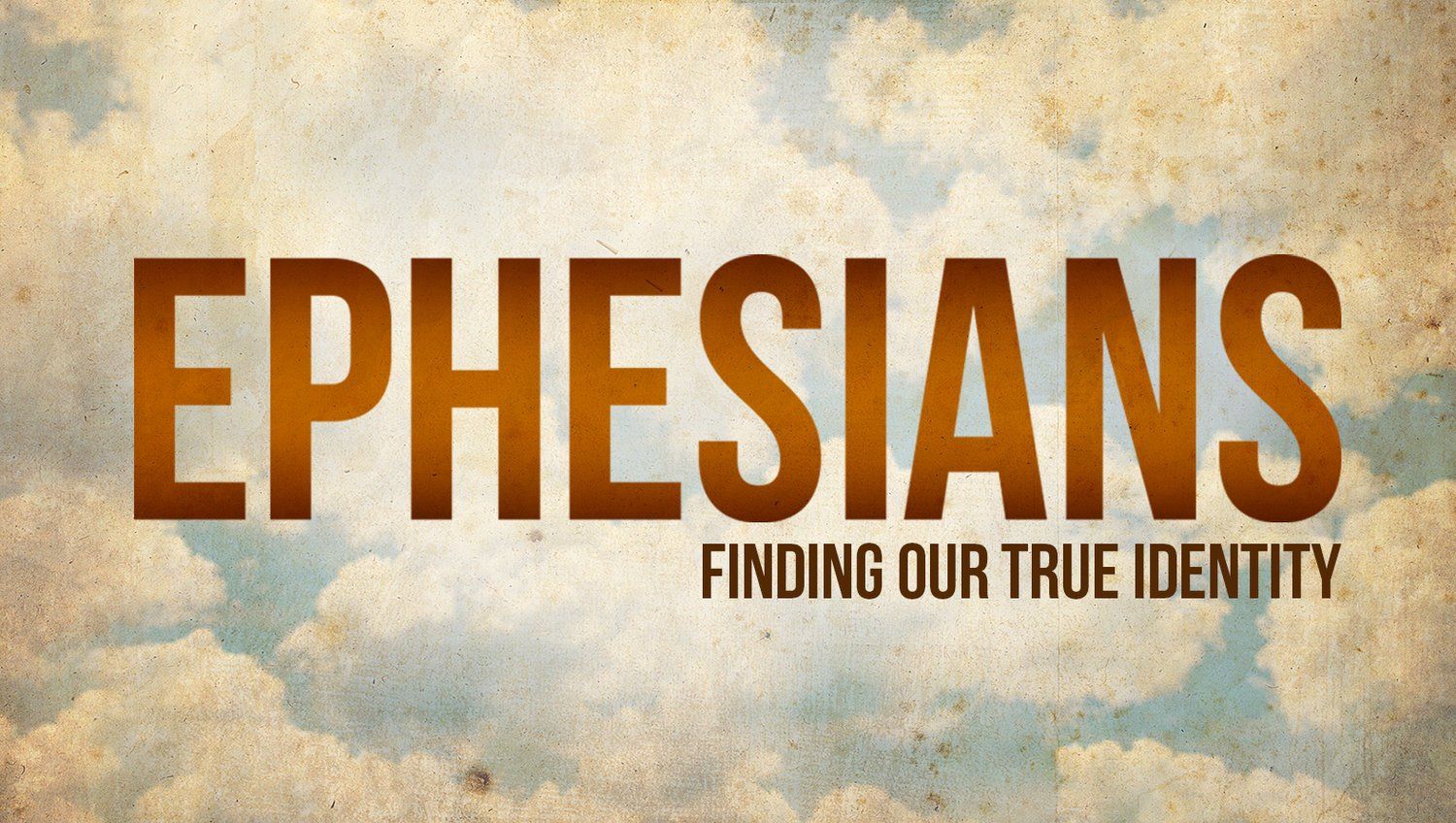Reflections of John 16-20
Timothy Morton • May 8, 2020
Very truly I tell you, you will weep and mourn while the world rejoices. You will grieve, but your grief will turn to joy. John 16:20
Now this is eternal life: that they know you, the only true God, and Jesus Christ, whom you have sent. John 17:3
“You are a king, then!” said Pilate. Jesus answered, “You say that I am a king. In fact, the reason I was born and came into the world is to testify to the truth. Everyone on the side of truth listens to me.” John 18:37
Jesus answered, “You would have no power over me if it were not given to you from above. Therefore the one who handed me over to you is guilty of a greater sin.” John 19:11
Then Jesus told him, “Because you have seen me, you have believed; blessed are those who have not seen and yet have believed.” John 20:29

What did I learn about God in John 16?
In John 16, Jesus is preparing His disciples for the coming challenge of the cross. He tells them of His immediate, brief departure. The disciples didn’t understand that the arrest of Jesus was only an hour or two away, and then His crucifixion would follow. Yet because He must go to the Father, they would see Him again as He rose from the dead. The disciples were both troubled and confused. They probably thought Jesus spoke with unnecessary mystery about where He was going and what He would do. Jesus understood that the disciples wanted more clarity; but He also knew that they needed more than information. They needed their hearts and minds prepared to endure the coming crisis. In verse 20 He states "Very truly I tell you, you will weep and mourn while the world rejoices. You will grieve, but your grief will turn to joy." Jesus knew they would be plunged into deep and dark sorrow in the next few hours. He also knew that God would, by His power and grace, turn their sorrow into joy.
What did I learn about myself in John 16?
I learned that God’s work was not to replace their sorrow with joy, but to turn sorrow into joy, as He often does in my life. Just like the disciples, there will be times of grief and sorrow in my life. The death of a loved one. A broken relationship. The loss of physical health. These moments are inevitable. But Jesus can turn that into joy. He went to the cross to defeat death and sin for me. Death does not have the final say. A place is reserved for me in my Father’s house. Where joy will be never ending. Thank you, Jesus, for turning my grief to joy!
What did I learn about God in John 17? In John 17, Jesus' breaks out into the only long, continuous prayer recorded in the Gospels. The sentences are simple, but the ideas are deep, moving, and meaningful. Jesus will touch on many of themes developed in this Gospel: glory, glorify, sent, believe, world, love. This remarkable prayer is made with a heart and mind looking up towards heaven. Jesus made no mention of His problems or the decisions He must make. His heart and mind were fixed on the highest things, pledging Himself to the absolutely fulfillment of God the Father’s will no matter what the cost, so that eternal life could come to others. In verse 3 He states, "Now this is eternal life; that they know you, the only true God, and Jesus Christ, whom you have sent." Eternal life is found in knowledge of both God the Father and Jesus Christ, God the Son.
What did I learn about myself in John 17?
I learned that this knowledge of God the Father and God the Son is a work in process for me. It is hard to comprehend how much my God loves me. But as I get to know Him and His character better, I am learning to receive and feel His love more. As I continue to learn from the master coach Jesus, I can see the love of the Father in how He interacted with His disciples and others. Jesus did not wait until His work on the cross to glorify God the Father. His entire life glorified God on the earth. Thank you, Jesus, for your example of how to give the Father glory. Continue to refine me so I too can glorify Him in all I do.
What did I learn about God in John 18?
In John 18, Jesus is about to be betrayed and arrested. He enters the garden and is followed by Judas and his troops. Judas hoped to catch Jesus by surprise, but this was impossible. Jesus’ entire life was prepared for this hour, and He was ready for it. Jesus willingly gave Himself up to protect His disciples. This was the same sacrificial love that would find its ultimate peak at the cross. Peter denies Jesus the first time. Annas interrogates Jesus. An anonymous official began the physical abuse of Jesus that would end in His crucifixion. Jesus is bound and sent to the high priest Caiaphas. Peter denies Christ two more times and the rooster crows. The Gospel of John mentions that Jesus was sent to Caiaphas, and then Caiaphas sent Jesus on to Pilate. John focused on the appearance of Jesus before the Roman leader, Pontius Pilate. Consistent with Roman character, Pilate spoke directly to the matter at hand. He demanded to know the accusation. Without yet answering Pilates demand for a specific accusation, the religious leaders explained why they did not want to judge Him according to their own law. They wanted Jesus dead, and the Romans did not allow them to execute the guilty under their own law. Pilate said that he, as a Roman, had no interest in Jewish spiritual or social ideas. Pilate simply understood that if the religious leaders wanted Jesus dead, He must have done something wrong and he wanted to find out what that was. Jesus plainly told Pilate that He was a king and could say, My kingdom. He also plainly told Pilate that His kingdom was not a rival political kingdom; it was and is not of this world. In verse 37 Jesus states "You say that I am a king. In fact, the reason I was born and came into the world is to testify to the truth. Everyone on the side of truth listens to me.” This was the statement that interested Pilate. Jesus did not deny that He was a king. He insisted that He was born a king, and to be a different kind of King. He came to be a King of Truth, that He should bear witness to the truth. Many today ask Pilate’s question, but from a different perspective. Noting that many things are true only based on personal preference or perspective, they think all truth is personal, individual. They think there is no true truth about God; there is only my truth and your truth, and one is as good as the other. Though this thinking is strong in today, it denies the fact that of why Jesus came to earth.
What did I learn about myself from John 18?
I learned that the truth is that Jesus is a king, His kingdom comes from heaven, and this kingdom is one of eternal truth. My belief in Christ is based upon what is truth. If I can believe in the one that was called and came to earth for me, it's because of what is truth. This changes everything. Faith is based on knowing and trusting in the truth that Jesus is who He says He is. His power of truth can work in my life. I can live with eternal truth right now. Thank you, Jesus, for testifying to the truth of who You are! Help me to continue to rest in this truth!
What did I learn about God in John 19? In John 19, Jesus is on His way to be crucified. Pilate gives into the mob, and has Jesus whipped and mocked. Whipping or scourging had three purposes. It was used to punish prisoners, and to gain confessions of crimes from prisoners. Also, in cases of crucifixion scourging was used to weaken the victim so he would die more quickly on the cross. Pilate hoped that this punishment of his prisoner would satisfy the crowd. Pilate presented Jesus to the crowd as One beaten and mocked, with blood, sweat, and spit all over His body. Whatever the crowd felt, the religious leaders immediately screamed “Crucify Him, crucify Him!” This was pure hatred, man’s hatred of God. Pilate couldn’t believe that Jesus would not speak to defend Himself. He couldn’t believe that Jesus would not beg for His life as many others had done. Pilate was amazed that Jesus was not intimidated by his power as judge to condemn and crucify. In verse 11 Jesus says to Pilate "You would have no power over me if it was not given to you. Therefore, the one who handed me over to you is guilty of a greater sin." Jesus answered, explaining the true nature of power to Pilate. In the thinking of the Roman governor, Rome had the power. God held the power. Jesus didn’t say Pilate was without sin; simply that the religious leaders and Judas were guilty of greater sin.
What did I learn about myself from John 19?
I learned that even though Pilate and the religious leaders thought that they were in control, the power of Jesus was on display. The statements of Jesus to Pilate had to confuse and make him curious. It seems that Pilate wanted to release Jesus, but he panicked and gave in. I can imagine how he felt after the tomb was empty. Jesus knew that His role in the redemption of the world had to happen. It was His Fathers will. He stood before the crowd as an innocent lamb, waiting to be slaughtered for good of mankind. As the religious leaders celebrated His death, His followers grieved and were filled with sorrow. And then He rose! He became the fulfillment of the law. I can now come before a Holy God as being righteous by the blood of the lamb. Thank you, Jesus for Your sacrifice. Your obedience to the Father in His plan to redeem the world is the most significant event in history!
What did I learn about God from John 20?
In John 20, Mary Magdalene comes upon Jesus’ tomb, finds it empty and tells the disciples about it. When she saw the empty tomb, Mary’s first reaction was to think the body of Jesus was stolen. She wasn’t wishing for or anticipating the resurrection of Jesus, and she certainly did not imagine it out of hope. After Peter went into the tomb John also went in. John believed without even seeing Jesus. At this point Peter and John were persuaded of the fact of the resurrection and they believed. Yet, they did not understand the meaning of the resurrection. The resurrection means that Jesus was declared to be the Son of God with power, according to the Spirit of holiness, by the resurrection from the dead. (Romans 1:4). The resurrection means that we have assurance of our own resurrection. (1 Thessalonians 4:14) The resurrection means that Jesus has a continuing ministry. (Hebrews 7:25) The resurrection means that Christianity and its God are unique and completely different and unique among world religions. Mary wondered and worried about where Jesus was, but He wasn’t far away. Jesus had only to say one word, and all was explained. Jesus then appears to the disciples. Jesus assured them He was Jesus of Nazareth and that He was really raised from the dead. Jesus just gave them the blessing of His peace. Perhaps the emphasis there was to calm their fear and shock at the moment. The repetition of this promise makes this gift of peace much larger and more significant. The resurrected Jesus brings peace. The disciple Thomas was not with them. Thomas is often known as Doubting Thomas, a title that misstates his error and ignores what became of him. Here we could say that Thomas didn’t doubt; he plainly and strongly refused to believe. Jesus returns eight days later, and Thomas is there. Jesus granted Thomas the evidence he demanded. We suppose that Jesus was not obligated to do this; He could have rightly demanded faith from Thomas based on the reliable evidence from others. Yet in mercy and kindness, Jesus gave Thomas what he asked for. Thomas made an immediate transition from declared unbelief to radical belief. In verse 29, Jesus states "Because you have seen me, you have believed; blessed are those who have not seen and believe." There is a special promise blessing given to those who believe. Thomas demanded to see and touch before he would believe in the resurrected Jesus. Jesus understood that the testimony of reliable witnesses was evidence enough, and there was a blessing for those who accepted that enough evidence.
What did I learn about myself in John 20?
I learned that everything changed when the disciples were about to see the risen Jesus. He knew their needs and knew what role that they were going to play in the building of His kingdom on earth. He breathes the Holy Spirit into them. They have new life and are re-created for this work. It's hard to wrap my head around the fact that I have the same power working through me. This is Jesus' way to always be with me. This is Jesus way to teach, guide, and equip me for the work He has called be to do. Why else would He tell Thomas that the blessed are those who have not seen Jesus and still believe? He knew what was ahead. This really comforts and strengthens me today. Lord, thank you for the lesson in John 20. You came back to show your power. You came back to share Your Spirit. That same power is available to me. Help my unbelief in this truth. The evil one is lurking every day to distract me from focusing on You and Your plan for me. May I walk in the Holy Spirit and see its fruit in my life.
Metro Detroit FCA Blog

But our citizenship is in heaven. And we eagerly await a Savior from there, the Lord Jesus Christ, who, by the power that enables him to bring everything under his control, will transform our lowly bodies so that they will be like his glorious body. What was revealed to me in Philippians 3:20-21? I love traveling to other countries to see how others live and learn about their culture and history. Every country has a story, and it can give us perspective into their way of life. It can be a little awkward at times because I am in a place that is not my home. I am going to stand out in the crowd because I am not from there. And even though it is fun and exciting to learn about unfamiliar places, it is comforting to know that I will be going back home at some point where I am a born citizen. This is Paul's point with the Philippians. He even takes it one step further. We are citizens in heaven. This is not our home. Even what you think is your home is not. We need to act in such a way that others know where are home is. We need to be excited about finally being home with Jesus. It is like the week before a vacation. Your excited because you are going to be going somewhere different. Your live with anticipation of what is going to happen. The vacation never lives up to the hype and there is always the dreaded trip back home. Brothers and sisters, we will not have to worry about that. We can live with anticipation every day because we know that this is not our home, and we will be with Jesus one day. Except this time, it will live up to the hype and more. This time, we will not have the dreaded trip back. Jesus will bring all things back into order and we will have heavenly bodies free from sin. We will be with God forever! Amen, Amen, Amen! What a great letter that Paul wrote to the Philippians! There are so many "friends" and "daggers". A had a pastor who taught scripture memorization, who put verses into these two categories so he could access them depending on what was needed for the situation he was in. He had also struggled with depression and anxiety and the "friend" verses comforted him. He also felt spiritually attacked at times and needed a "dagger" to fend off the evil one. Here is my "friend" and "dagger" from Chapter 4: Friend: Rejoice in the Lord always. I will say it again: Rejoice! Let your gentleness be evident to all. The Lord is near. Do not be anxious about anything, but in every situation, by prayer and petition, with thanksgiving, present your requests to God. And the peace of God, which transcends all understanding, will guard your hearts and your minds in Christ Jesus. Dagger: I know what it is to be in need, and I know what it is to have plenty. I have learned the secret of being content in any and every situation, whether well fed or hungry, whether living in plenty or in want. I can do all this through him who gives me strength. What was revealed to me in Philippians 4:4-7 and 4:12-13? Paul’s joy was not based in a sunny optimism or positive mental attitude as much as it was the confidence that God was in control. It really was a joy in the Lord. When we live with the awareness of Jesus’ soon return, it makes it all the easier to rejoice in the Lord and to show gentleness to all men. Paul commands us to not be anxious. Worry is in fact a type of sin. God wants us to bring everything to Him. He already knows our requests before we say them, but He will wait for us to engage to work through our requests. I have a brother in Christ who has helped me with my prayer life. He lives by the adage "stop, drop, and pray". The peace of God does not just surpass the understanding of the worldly man; it surpasses all understanding. Even the godly man cannot comprehend this peace. When people seem to “lose” their heart or mind, it often is connected to an absence of the peace of God in their life. “There are a great many men that know a little how to be abased, that do not know at all how to abound. When they are put down into the pit with Joseph, they look up and see the starry promise, and they hope for an escape. But when they are put on the top of a pinnacle, their heads grow dizzy, and they are ready to fall.” (Spurgeon) Paul had to learn that contentment, is not natural to mankind. He lived it out. He was financially well off and he had been financially in need. According to Spurgeon, it is much harder to have a lot and be content. We start to think it is all about us and pride starts to seep in. This verse brings out the "dagger" to slay our pride. Paul had the ability to be content in all things because of the strength of Jesus. We must always also put this precious statement of faith in connection with John 15:5: for without Me you can do nothing. With Jesus we can do all things, without Him we cannot do anything.

I thank my God every time I remember you. In all my prayers for all of you, I always pray with joy 5because of your partnership in the gospel from the first day until now, being confident of this, that he who began a good work in you will carry it on to completion until the day of Christ Jesus. What was revealed to me in Philippians 1:4-6? This portion of Philippians is very special to me. I will often send it as a prayerful thank you for those that have partnered with me in the ministry of FCA. Whether it is the faithful prayers, the sharing of time and talents, and even financial resources, these are greatly needed and appreciated. There would be no ministry of FCA without this. Those in Philippi got behind Paul because of who he was and his heart for the Gospel of Jesus Christ. His "work" was spreading this "good news" throughout the world. They would not be compelled to do this unless they believed in him and his work. He wants them to be encouraged even though they face opposition. He wants to show them that even though he is in prison, the mission doesn't change. In fact, it becomes more important. Our mission is to lead every coach and athlete into a growing relationship with Jesus Christ and His church. This past year has been challenging for all of us. The opposition that we are up against here is nothing like what Paul went through, but we all have our own individual challenges that we are currently have or have had. The mission was clear back then and it is today. Our methods and strategies may have to change because of the circumstances we are in. God will complete His work! Do everything without grumbling or arguing, so that you may become blameless and pure, “children of God without fault in a warped and crooked generation.” Then you will shine among them like stars in the sky as you hold firmly to the word of life. What was revealed to me in Philippians 2:14-16? This chapter is all about humility. No one modeled this better than Jesus. The Philippians struggled with this. There is definite conflict among themselves or with God. One aspect of humility is how treat others in their presence. Do we act as if they have value? Or do we just want them to see our point of view as right and theirs as wrong. It's easy to treat someone well that believes like you and is a part of your circle. Do we see others as problems to be fixed? We can have the same attitude with God. It is easy to ask God the "why" questions when trials happen, or things don't go according to plan. We can become bitter and grumble instead of grateful and humble. Brothers, if we want to stand out and "shine like stars" we need to be different. We need to live in such a way that others will be curious as to why. We don't control how others will respond. We only have the ability through the power of the Holy Spirit to control our response. I had this quote that I would use with my players as I wanted them to be grateful for what they had and not bitter for want they didn't have: “Any fool can criticize, condemn, and complain, and most fools do!”

So Christ himself gave the apostles, the prophets, the evangelists, the pastors and teachers, to equip his people for works of service, so that the body of Christ may be built up until we all reach unity in the faith and in the knowledge of the Son of God and become mature, attaining to the whole measure of the fullness of Christ. What was revealed to me in Ephesians 4:11-13? Not all followers are called into ministry, but all play a role in the body of Christ. I once heard someone say that God doesn't call the qualified, He qualifies the call. He can use anyone who feels called. I just took a spiritual gifts assessment to find out what my spiritual gifts were. It was very affirming. My top spiritual gift was teaching. Tied for second was faith and leadership. The assessment had this charge: Be bold in your faith walk and take it to another level in teaching others. There is power in your teaching. Do not hold on to anything but use everything in His name and use to build the body of Christ. Keep your eye on the vision God has given you! This statement applies to every believer! Jesus has gifted you for the work and vision He has given you! We all need to use our gifts to build up the body. As we continue to battle every day, stumbling forward in the grace of God, we will become mature in Him. We will equip others. We will help bring unity and not division. This is our charge. I am proud to be in the battle on God’s team as we lock arms spiritually each day. However, each one of you also must love his wife as he loves himself, and the wife must respect her husband. What was revealed to me in Ephesians 5:33? If verse 33 in this great passage could be boiled down to two principles which must govern our thinking and our actions as married people, those two are: Husbands: Understand that you and your wife are one, are a unity. Wives: Understand that your unity has a head – your husband. These principles are easier said than done. Men and woman are made differently, therefore we communicate differently. A woman hears and sees things much differently than a man does. The key is that both in the marriage are accepting of God's plan for marriage and what His Word says about it. If I value my vertical relationship with God, then I will work under His authority and obey His Word. Therefore, I need to love my wife like Christ loved the church. I need to love my wife like my own body. I need to honor her as my helper. The better I love her with the love of Christ, the more motivated she will be to respect and honor me. For our struggle is not against flesh and blood, but against the rulers, against the authorities, against the powers of this dark world and against the spiritual forces of evil in the heavenly realms. Therefore put on the full armor of God, so that when the day of evil comes, you may be able to stand your ground, and after you have done everything, to stand. What was revealed to me in Ephesians 6:12-13? After Paul has given us instruction on why we should love and how we should love, he is clear in where the real battle can be found. There are so many facets to the character of Jesus that we can identify with depending on where we are in our faith and what trial we are going through. I have spent so much time identifying what an authentic man of God looks like and acts like. Every day I try to identify with my warrior Jesus. There is no doubt, if you are striving to follow Christ and be an authentic man of God, YOU WILL BE ATTACKED! What is helping me is that we have a Lord that knows this. In fact, He created these spiritual forces. He only allows them so much influence. He has given us the "armor" to stand and fight them off. He Himself experienced all the temptation that we go through. As an athlete and coach, I loved the battle because it was an opportunity for two things to happen. I could beat my opponent and teach them something and make them better or I could be the one that is taught the lesson. It is all about perspective. We need to prepare. We need to know our opponent and how He is going to attack us. The Holy Spirit can give us wisdom in this area. The full armor of God can protect our weak areas. The full armor of God can give us the weapon to fight back. There may be times when it feels like the enemy is winning. There may be times when the enemy is getting into our heads and creating doubt. But remember this, Jesus has already won the war over sin, death, and the devil. It was finished on the cross and through His resurrection. He is right there with us every day like a great General leading us into our daily battle. He has equipped us and will never leave our side. In Him we can stand.

In him we have redemption through his blood, the forgiveness of sins, in accordance with the riches of God’s grace that he lavished on us. With all wisdom and understanding, he made known to us the mystery of his will according to his good pleasure, which he purposed in Christ, to be put into effect when the times reach their fulfillment—to bring unity to all things in heaven and on earth under Christ. What was revealed to me in Ephesians 1:7-10? We have no redemption outside of Jesus and His blood. His good deeds did not save us. His wonderful teachings did not save us. Only His blood. It was part of the plan from the very beginning. God's grace is so immense that we struggle to comprehend it. Therefore, it is called a mystery. To those that do not know Him it is foolishness. To those that do not know Him they are destined to try to figure it out under their own wisdom and knowledge. Will power only takes you so far. I am learning that if I strive to work under the authority of Christ, God will reveal His great plan for me. Part of that plan will be the bringing of all things into unity. Right now, we see anything but unity in our country if you watch the news or spend time on social media. Satan is loving it when we get caught up in trying to be right and proving someone else wrong. He loves it when we spend all our time and energy trying to fix others to meet our agenda. Even the church itself is very divided. To call yourself a Christian today must come with some clarification. There are countless things that can divide. But God, is still working in the hearts of those who love Him. But Christ, is still changing the hearts of those that humble themselves and what to work under His authority and power. All things in Christ will be brought together in the fullness of the time. On that day there will be two things going on. There will be destruction and celebration. The challenge is to not fix others or condemn them. Only through the power of the Spirit can we love others and live our lives according to His principles. The whole book of Ephesians will help us with this! Consequently, you are no longer foreigners and strangers, but fellow citizens with God’s people and also members of his household, built on the foundation of the apostles and prophets, with Christ Jesus himself as the chief cornerstone. In him the whole building is joined together and rises to become a holy temple in the Lord. And in him you too are being built together to become a dwelling in which God lives by his Spirit. What was revealed to me in Ephesians 2:19-22? Paul ended the last chapter by considering that the ultimate example of God’s power was the resurrection of Jesus. Now Paul considers what the implications of Jesus’ resurrection power are for our life. We have been reconciled to God through the work and life of Jesus. He loved us when we were dead. He extends His amazing grace to save us and create faith. He has an amazing plan for us to work through in the time He has gifted us. This is for all people, not just for the Jew. Unity in one Spirit. It almost sounds too good to be true, but it is! There is only one thing that unifies and brings everyone together into God's family. The chief cornerstone, Jesus. I found this in my research on the cornerstone: Since ancient times, builders have used cornerstones in their construction projects. A cornerstone was the principal stone, usually placed at the corner of an edifice, to guide the workers in their course. The cornerstone was usually one of the largest, the most solid, and the most carefully constructed of any in the edifice. The Bible describes Jesus as the cornerstone that His church would be built upon. He is foundational. Once the cornerstone was set, it became the basis for determining every measurement in the remaining construction; everything was aligned to it. As the cornerstone of the building of the church, Jesus is our standard of measure and alignment. Each of us are a brick in the building of the holy temple of the Lord. God dwells with us by His Spirit. Brothers, this is so foundational to our faith! May we see ourselves as builders of the holy temple and Kingdom of the Lord. Each decision for Christ is another faithful brick to add around our chief cornerstone! I became a servant of this gospel by the gift of God’s grace given me through the working of his power. Although I am less than the least of all the Lord’s people, this grace was given me: to preach to the Gentiles the boundless riches of Christ, and to make plain to everyone the administration of this mystery, which for ages past was kept hidden in God, who created all things. What was revealed to me in Ephesians 3:7-9? This could only happen through the gospel, where all men have an equal standing in Jesus. This is the same gospel Paul is a servant of, because of the gift of grace given to him by the working of God’s power. Paul marveled at the grace given to him, by which he was called to preach the gospel that makes the mystery a reality. When we consider Paul’s personal history, we see that his calling really was all of grace. Paul’s passion was to make this gospel known to all people. He wants everybody to see and share in the fellowship of this mystery – which is a mystery precisely because it was unknown and unknowable until God revealed it. It demonstrates that these are not only facts to know but also a life to live, united in Jesus with other believers, without any separation such as existed between Jew and Gentile. There is so much richness in this chapter. The prayer at the end of the chapter is a wonderful encouragement to other believers who are trying to live out the gospel in their lives. The verses prior is Paul's way to explain what the mystery of the gospel is and the why we should be sharing it with others. The true gospel unifies and divides. The true gospel is a mystery. It was revealed with the finished work of Jesus on the cross. Paul was always marveled on the gift of God's grace because he remembered who he was. I have a bible study teacher at church who was saved when he was 35 years old driving down I-75. The mystery of the gospel finally became clear to him and he surrendered. His life is now dedicated to sharing in the fellowship of this mystery. It is revealed through His Word. It is revealed in the changed lives of others that we see. It is revealed by the Holy Spirit when a heart and mind are receptive. He has this quote that he uses that I think is so true of all believers who have surrendered. "I'm not who I want to be. I'm not who I ought to be, but I'm not who I used to be."









